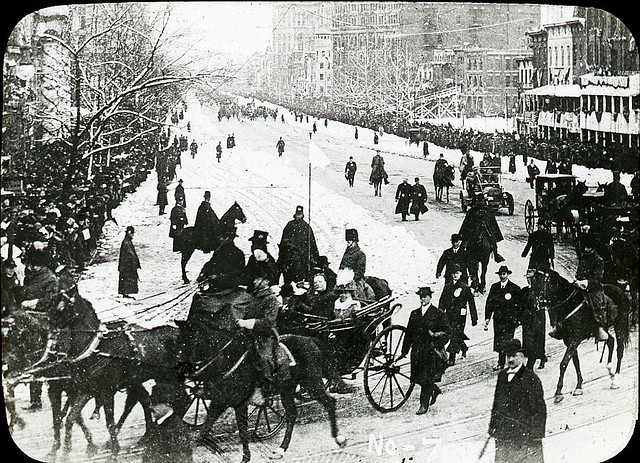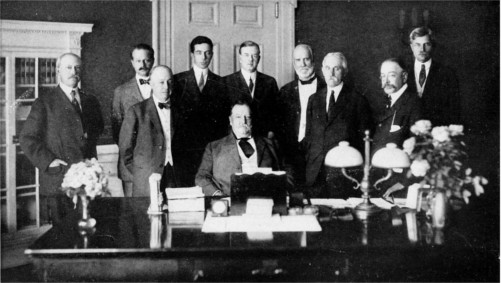With the support of Teddy Roosevelt, Taft was selected as the Republican Party candidate for the 1908 presidential election. His Democratic opponent was the widely-known progressive, William Jennings Bryan, who was making his third bid for the presidency. The Democrats had nominated a conservative candidate in the previous election, but their man hadn't stood much of a chance against Roosevelt. They nominated Bryan for 1908, hoping to gain a large enough share of the Populist vote to defeat Taft. In the end, Taft received almost twice the number of electoral college votes as Bryan.

Although he was elected as a "Progressive," Taft's policies became more conservative after the first year of his administration. Initially, he continued Roosevelt's policy of restricting the size of big companies, and he actively pursued anti-trust cases. However, these anti-corporate activities troubled Taft's Secretary of State, Philander Knox. Knox considered the ultimate goal of diplomacy to be expanding financial opportunities for American corporations. It didn't make sense for Taft to crack down on companies at home while his State Department went to great lengths to help them succeed in other countries.

The idea that the government should focus its energy (and money) on improving conditions for U.S. companies operating overseas was central to Taft's foreign policy, which came to be known as "dollar diplomacy." It was an approach that helped American corporations expand into unstable regions around the world. One interpretation of this kind of corporate involvement in political affairs, of course, was that big business had been handed an important role in controlling or at least strongly influencing the government.
Question
What was unique about Taft's political career?
